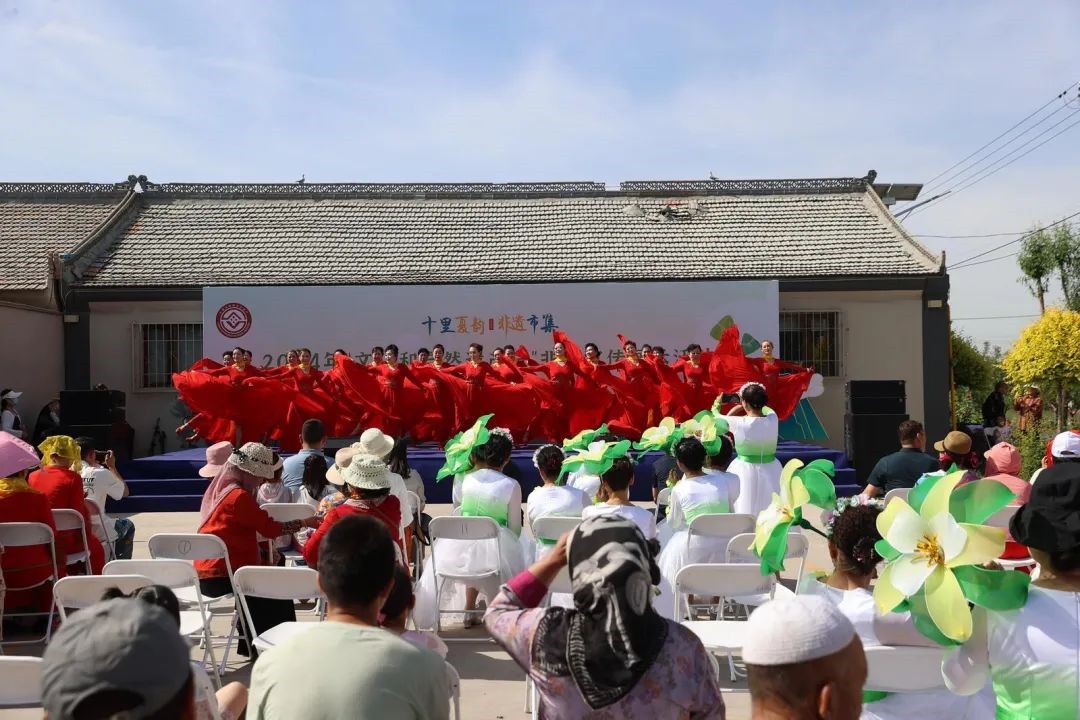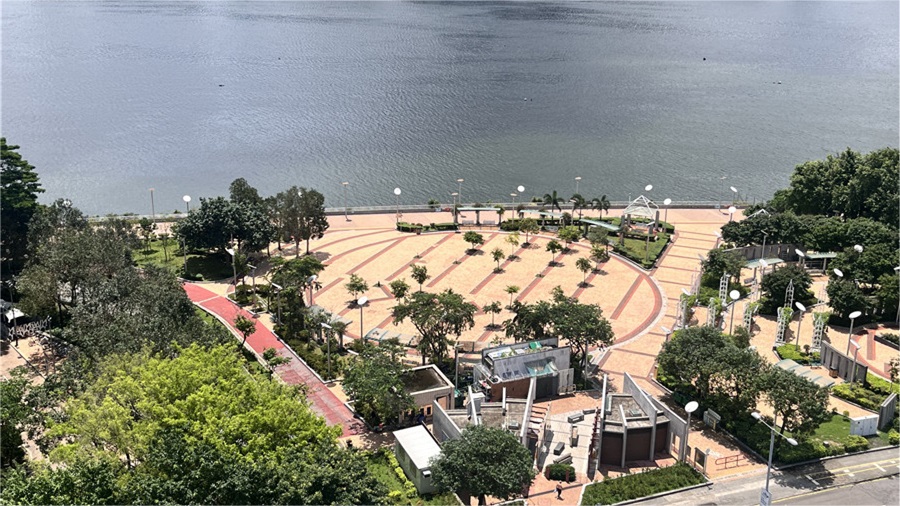Ningxia makes continuous efforts to strengthen public cultural services
On the loess slope of Xiaohe village, Xiaohe township, Xiji county, Guyuan, northwest China's Ningxia Hui autonomous region, Su Zhanshan, a cattle farmer, was rushing towards the village library under the blazing noon sun and a cloudless sky.
His herd's sudden loss of appetite caused him great concern. When asked by a fellow villager about what he planned to do, he answered with just two words: "Finding books."

Villagers read books in a reading room established by the Ningxia Library in Yuanzi village, Liangtian township, Yinchuan, capital of northwest China's Ningxia Hui autonomous region. (Photo provided by Ningxia Library)
He found a book on beef cattle breeding techniques at the village library, from which he identified that the main reason for his cattle's sickness was a problem with the ratio of silage to salt in their feed, causing digestive issues.
"I always go to the library right away whenever there's an issue with cattle farming," said Su.
Su's story is not unique in Xiji county, as Ningxia has made strides in improving rural public cultural services in recent years. In 2017, comprehensive cultural service centers were set up in every one of the 295 administrative villages in Xiji county. In particular, the county has built village libraries and set up cultural activity rooms, providing villagers with access to cultural activities and learning opportunities.
"We have worked to ensure that each village library has no less than 1,000 books, with over 60 percent related to agricultural technology to accommodate rural settings," said Chen Lixia, head of the bureau of culture, tourism, radio and television in Xiji county.
By scanning a QR code on a book-borrowing machine at a library in Xiaohe township with his smartphone, 19-year-old Su Zhanhu instantly obtained an electronic version of a book on basic welding techniques. Fascinated by the savable and editable charts in the book, he ended up spending half a day at the library.
After graduating with a degree in automotive repair, Su started working at a local garage, but struggled to catch up. He was shocked to come across books on automotive repair at the library when he returned to the township for the Spring Festival.
"With just a scan, I can access the latest e-books, making it much easier to browse and save information," he said.
"Digital systems and book circulation are essential for the development of modern rural libraries," said Ma Youguo, head of the Xiji county library.

An art performance is staged in Shilipu village, Xingjing township, Yinchuan, capital of northwest China's Ningxia Hui autonomous region. (Photo from the WeChat public account of the Yinchuan Municipal Bureau of Culture, Tourism, Radio and Television)
Ma said that the library has introduced a "borrow anywhere, return anywhere" system across all townships to improve book circulation, given the limited book collections and difficulties in keeping books up to date.
"This has not only increased the flow of books, but also allowed us to make targeted purchases based on borrowing trends, thus better meeting people's needs," noted Ma.
"These days, the reading rooms of the libraries are taking on more and more functions," said Wang Zhijie, Party head of Xiaohe township, explaining that they are not just for reading anymore, but offering a place for people to study and hold cultural activities.
"In the past, villages only had a small room of about over 10 square meters, used solely for reading. Now, after renovating the bookshelves, and adding desktop computers, reading tables and chairs, these reading rooms become more spacious and user-friendly. We are seeing more people and a wider range of activities," said Wang.
In recent years, Xiji county has transformed small-room libraries into spacious areas housing books, cultural supplies, and audio-visual equipment.
Bathing the warm sunlight through the window of the newly built library, Su Zhanshan said that the library-turned cultural activity room has become the villagers' favorite spot. During the off-season, they would gather in the room to play Chinese chess and dance, and they have even formed a Qin opera troupe, added Su.
"When we all unite with such enthusiasm, it's hard not to feel hopeful about the future," said Su.
Photos
Related Stories
- Fishery-solar power integration projects bring extra income to local fishpond operators in China's Ningxia
- China's Ningxia achieves major progress in ecological protection
- AEO certification streamlines foreign trade operations in NW China's Ningxia
- Smart photovoltaic base revitalizes NW China's barren lands
- Sci-tech innovation boosts value of Ningxia's goji berries
Copyright © 2024 People's Daily Online. All Rights Reserved.









